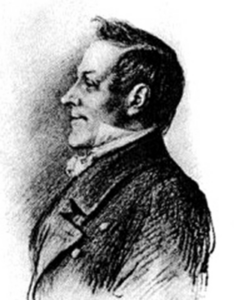With the punch
(Poet's title: Zum Punsche)
Set by Schubert:
D 492
[October 1816]
Woget brausend, Harmonieen,
Kehre wieder, alte Zeit;
Punschgefüllte Becher, wandert
In des Kreises Heiterkeit.
Mich ergreifen schon die Wellen,
Bin der Erde weit entrückt;
Sterne winken, Lüfte säuseln,
Und die Seele ist beglückt.
Was das Leben aufgebürdet,
Liegt am Ufer nebelschwer;
Steure fort, ein rascher Schwimmer,
In das hohe Friedensmeer.
Was des Schwimmers Lust vermehret,
Ist das Plätschern hinterdrein,
Denn es folgen die Genossen,
Keiner will der Letzte sein.
Harmonies, surge and ring out,
Former time, come back;
Goblet filled with punch, travel
Into the cheerfulness of this circle!
The waves have already taken hold of me,
I have been transported far from the world;
Stars signal, breezes rustle, –
And the soul is delighted!
What life burdens us with
Lies heavy as fog on the shore;
Steer your course, be a quick swimmer,
Into the high sea of peace.
What increases the swimmer’s delight
Is the splashing going on behind;
For colleagues are following,
Nobody wants to be the last.
All translations into English that appear on this website, unless otherwise stated, are by Malcolm Wren. You are free to use them on condition that you acknowledge Malcolm Wren as the translator and schubertsong.uk as the source. Unless otherwise stated, the comments and essays that appear after the texts and translations are by Malcolm Wren and are © Copyright.
☙
Themes and images in this text:
By water – beaches and general Circles Cups and goblets Drinking Drinking songs Harmony High, low and deep Mist and fog Near and far The sea Soul Stars Swimming Waves – Welle Walking and wandering Wind
Anyone looking at a sample of Mayrhofer’s poetry (and particularly those texts set to music by Schubert) will soon notice his fascination with water: rivers, lakes and the sea. They might find it hard to believe that he was so totally land-locked; he appears never to have left the area around Vienna and he never set eyes on an ocean. It seems strange, then, that this drinking song should centre on the companionship of swimmers who have left behind their troubles on the sea-shore.
For the poet, the sea he and his companions are swimming in is an ocean of freedom. Waves of harmony and surges of alcohol have created the sensation that they have already been engulfed by the sea. They have been able to leave their burdens behind on the shore, on which they look back with relief. The daily grind and the oppressive structures that control their normal lives form a bank of fog, but splashing about out here we can get away from all of that. We catch sight of the beckoning stars and our souls become enraptured with the thrill of escape. They might not feel the same in the morning.
☙
Original Spelling Zum Punsche Woget brausend, Harmonieen, Kehre wieder, alte Zeit; Punschgefüllte Becher, wandert In des Kreises Heiterkeit! Mich ergreifen schon die Wellen, Bin der Erde weit entrückt; Sterne winken, Lüfte säuseln, - Und die Seele ist beglückt! Was das Leben aufgebürdet, Liegt am Ufer nebelschwer; Steu're fort, ein rascher Schwimmer, In das hohe Friedensmeer. Was des Schwimmers Lust vermehret, Ist das Plätschern hinterdrein; Denn es folgen die Genossen, Keiner will der Letzte sein.
Confirmed by Peter Rastl with Gedichte von Johann Mayrhofer. Neue Sammlung. Aus dessen Nachlasse mit Biographie und Vorwort herausgegeben von Ernst Freih. v. Feuchtersleben. Wien, 1843. Verlag von Ignaz Klang, Buchhändler, page 84.
To see an early edition of the text, go to page 84 [104 von 320] here: http://digital.onb.ac.at/OnbViewer/viewer.faces?doc=ABO_%2BZ17745080X


